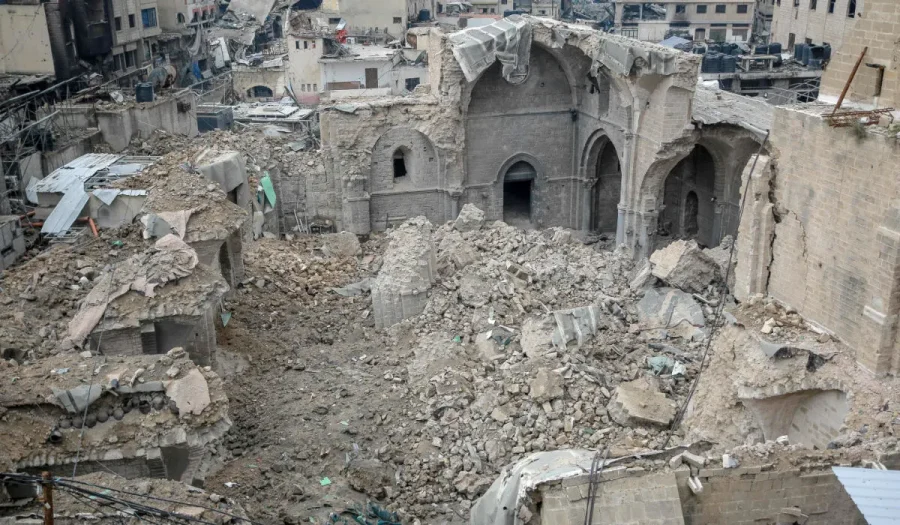Incendiary statements” by some within the Israeli leadership calling for the permanent resettlement of Palestinians in other countries have sparked fears that they are being deliberately forced out of Gaza and will not be allowed to return. A leading UN human rights Official warned the Security Council on Friday that “this must not be permitted” and that compelling Palestinians to evacuate their land might be tantamount to a war crime.
Ilze Brands Kehris, the assistant secretary-general for human rights, told council members that “the horror of the Oct. 7 attacks, for which there must be accountability, will not be forgotten.”
But the threat of forced displacement carries “particular resonance” for Palestinians, she added.
“It is seared into Palestinian collective consciousness by what they refer to as the Nakba, or “catastrophe,” of 1948 when millions of Palestinians were forced from their homes,” she said.
Brands Kehris was speaking during a meeting of the Security Council that was requested by Algeria to discuss the threat Palestinians face of forced displacement in Gaza.
She said the mass displacement began on Oct. 12 when Israeli authorities ordered civilians living north of Wadi Gaza to leave their homes and head south, ahead of the launch of Israel’s military offensive.
“While Israel stated that its evacuation orders have been for the safety of Palestinian civilians, it appears that Israel has made scant provision to ensure such relocations comply with international law, in particular by ensuring access to appropriate hygiene, health, safety, nutrition and shelter, and taking steps to minimize the risk of separation of family members,” Brands Kehris said.
“Such compelled evacuations, failing to meet the necessary conditions for lawfulness, therefore potentially amount to forcible transfer: a war crime.
“These orders have often been confusing, requiring civilians to move to so-called ‘humanitarian zones’ or ‘known shelters,’ despite the fact that many such areas have been subsequently struck during Israeli military operations, and the lack of any capacity in the shelters to absorb more people.”
More than 90 percent of the population of Gaza is suffering from acute food insecurity, she added, and many are on the brink of “avoidable, human-made” famine. She stressed that starvation of a civilian population as a tactic of war is prohibited under international law.
“The unacceptably high civilian casualty rate, the nearly complete destruction of essential civilian infrastructure, the displacement of an overwhelming percentage of the population, and the abominable humanitarian conditions which 2.2 million people are being forced to endure raise very serious concerns about the potential commission of war crimes, while the risk of further grave violations, even atrocity crimes, is very real,” said Brands Kehris.
“The prospect of widespread famine and disease as Palestinians are crammed into the tiniest slivers of the Gaza Strip along the Egyptian border, in overcrowded and dire humanitarian conditions with insufficient aid and a collapse in the provision of basic services, while Middle Gaza and Khan Younis remain under sustained aerial bombardment, cumulatively heightens the risks of further massive displacement on a widening scale, potentially even beyond Gaza’s borders. With people desperate for safety and security, this is a risk the council must be alive to.—Agencies










